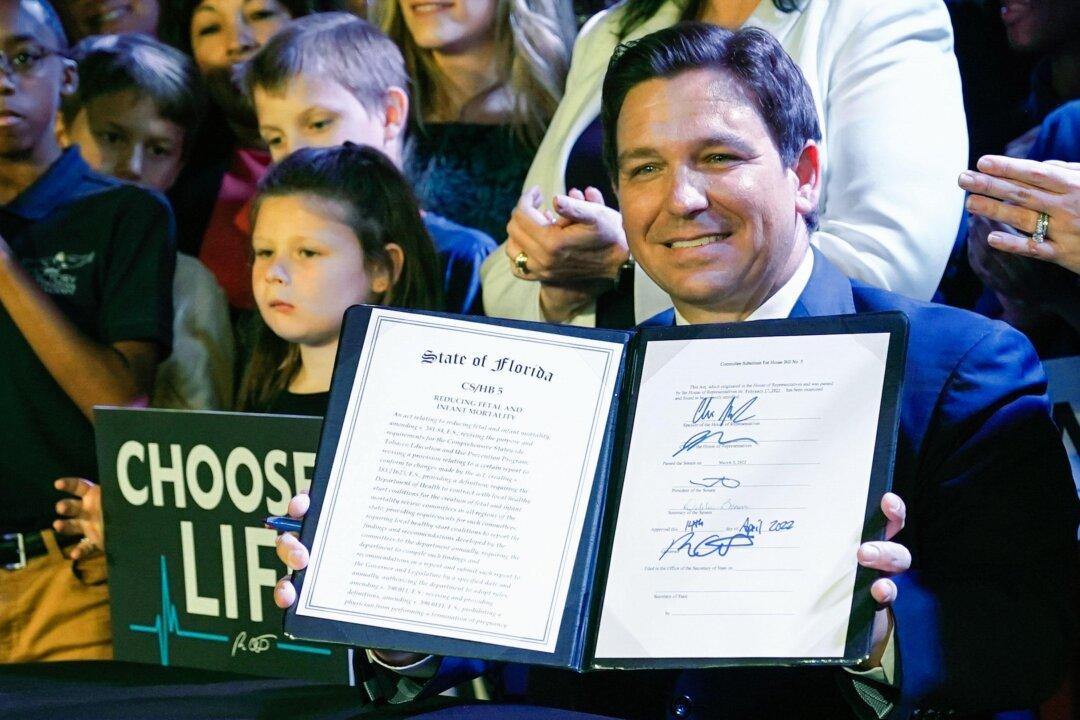A federal judge has declined to continue granting a preliminary injunction prohibiting Florida Gov. Ron DeSantis’s administration from pursuing legal action to stop a pro-abortion ad the state government calls “misinformation.”
District Judge Mark Waller said in his Nov. 6 order that though he supported the plaintiff’s former claim that it would face irreparable harm to its constitutional rights protecting its political speech leading up to the election, he could not grant the injunction now that it was over.





